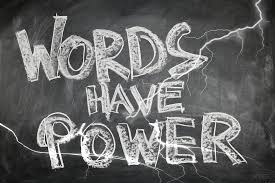
When I was in high school and studying English Literature, we read books like ‘Of Mice And Men’ and ‘An Inspector Calls’. One day that I remember clearly, a student asked the English teacher why we were bothering to study the sentences in such detail. This student was sure that writers would not and did not plan every single sentence they wrote. They thought that if a writer chose to write that the curtains were blue then they simply were blue and that it was not a subtle attempt at drawing out feelings of sadness from the reader. My teacher didn’t have a reply at the time, but after writing a book, reading hundreds of other books and many years later, I do have a reply.
I would say from my personal experience that 90% of what a writer writes is indeed thought about and chosen specifically. There is rarely a case as far as I know where the first draft is too short and needs extending, most of the time the first draft is too long and needs editing down. That means that every word written has to have a purpose, regardless of whether or not there is any deeper meaning behind those words. If you want to connect with your reader then you need to use good old psychology and hit them emotionally. When you’re writing any particular scene, whether its action, romance, suspense or melancholy, the best writers will choose words to amplify and compliment the overall mood of that scene. Not only does this improve your writing but it makes sense if you want people to buy your books. You want your readers to care about your characters and the story because people tend to pay more attention to and become more invested in the things that they care about.
Now you may be thinking that it is impossible for every word in a book to have a deeper meaning or relate to the overall mood. You can’t just change the colour of an object part way through the story to suit the mood, and realistic conversations would be incredibly difficult in this manner. You would be correct, but these words are still likely to have a purpose. Some words will be there simply to move the story along and others will be there because they make the most sense. For example, you wouldn’t put a luxury sports car in a story that has a medieval setting. Writers will spend months preparing to write, and months writing and rewriting just to get the best possible story that they can produce. So you can bet that nearly every line has been thought about carefully. Not only have I found this to be true myself, but a lot of writers are writing stories that do have a point and deeper meaning, and they subconsciously and consciously, tend to hide their thoughts and opinions within their words.
Words are important, and English words are notorious for having the same spelling but different pronunciations and meanings; you can wind a clock and you can hear the wind blowing. A clever writer may well use a word that has several different meanings depending on the context, to make a point or add extra dimensions to their characters.
Words are also incredibly powerful, you can change a person’s entire perception just by using words; terrorist or mentally unstable? Your words can paint pictures, and depending on what you want to get across to your reader, you have to spend some time thinking about the words you are going to use. Some words can be used to hide the truth and divide opinions, other words can be used to enhance your character’s personalities, traits and flaws. So the next time you pick up a pen or sit at your laptop ready to write, think about what you would like your readers to realise straight away, and what you would like your readers to figure out later on.